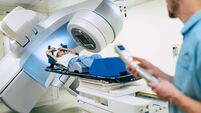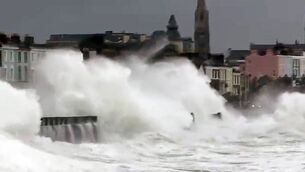More people being screened for cancer but diagnosis rates still down due to backlog

Cancer screening services were temporarily closed during the Covid-19 pandemic. File picture
More people are being screened for cancer now than during 2019 as the catch-up on appointments missed during the pandemic continues, but the number of cancers diagnosed this year is still down on 2019 figures.
The number of e-referrals for potential cancer assessments made by GPs between January and August increased by more than a third compared to the same time in 2019.













